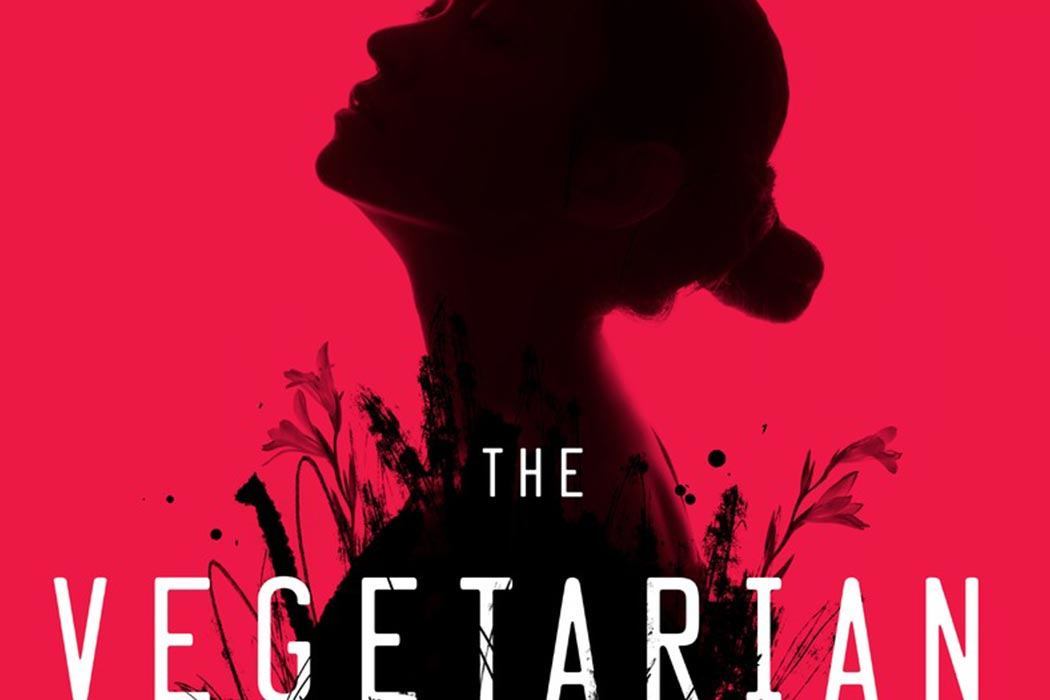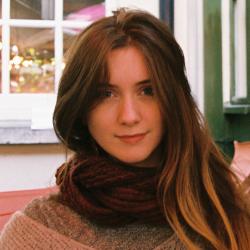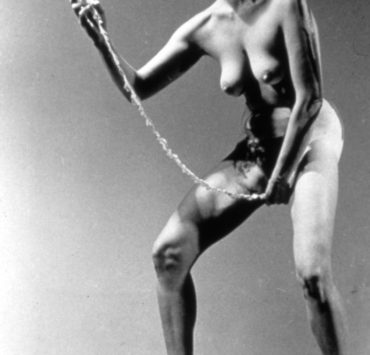
‘Shorn of its ceremony the body is, at best, a torn, riven thing – covered with hungry orifices.’
(Yaeger, 239)
Han Kang’s The Vegetarian is a slim book, consistently hypnotic and surreal.
This is partly because Yeong-hye, the eponymous vegetarian, spends the novel’s duration in a trance-like state. In short, the dream-logic that moves the book, its motives and outcomes, becomes hard to predict. The reader is not unlike a voyeur, moving around in the backstage passages of unwanted thoughts, and the effect is as unnerving as it is delicious.
Yeong-hye stops eating meat because she has a nightmare:
My bloody hands. My bloody mouth. In that barn, what had I done? Pushed that red raw mass into my mouth, felt it squish against my gums, the roof of my mouth, slick with crimson blood. (12)
From her husband, brother-in-law and finally her sister’s perspective, we see Yeong-hye’s family unravel in the aftermath of this dietary amendment. This simple decision to stop eating meat is all it takes, it seems, for the patina of normalcy to wear thin.
Why?
Because Yeong-hye’s female body is no longer performing as it should. Her lack of appetite extends to sex, she’s losing weight, and she’s no longer cooking sufficient meals for her husband. She is becoming un-sexual, un-feminine, un-domestic.
In response, her family turns to shameless manipulation, to startling violence. Given the extremity of their response, the reader feels safe in assuming Yeong-hye’s nightmares and vegetarianism have not flourished untended. Rather, they take the shape of a particular psychic wound. After the initial violence she suffers, we see glimpses of her childhood traumas – being beaten by her father, watching the slow, cruel death of a dog – but we’re discouraged from seeking a psychological explanation. Kang lets Yeong-hye’s transfiguration unfold on its own terms.
Her mother tells her, ‘Stop eating meat, and the world will devour you whole.’ (48)
But it’s not the world that comes to devour her, rather a self-cannibalising search for nourishment. There are moments when this interiorised violence pools outwards: under duress, she cuts her own wrist, and so has to be taken to hospital, where she crushes a small bird to death in her hand.
It was a small white-eye bird, with feathers missing here and there. Below tooth-marks which looked to have been caused by a predator’s bite, vivid red bloodstains were spreading. (52)
Though she’s stopped eating meat, she can’t dislodge the meat of the animals she’s already eaten. Their flesh sits inside her, a hurtful lump she can’t swallow away:
Something is stuck… I can feel this lump all the time. No matter how deeply I inhale, it doesn’t go away… I ate too much meat. The lives of the animals I ate have all lodged there. (49)
In Dirt and Desire: Reconstructing Southern Women’s Writing, 1930-1990, Patricia Yaeger writes of ‘fractured, excessive bodies telling us something that diverse southern cultures don’t want us to say.’ (xiii)
Yeong-hye’s body is certainly telling us things. Her vegetarianism escalates to dendrophilia: she wants to make herself small until her human body expires, at which point she’ll live as a plant. Self-sufficient, self-sustaining.
I’m not an animal any more … I don’t need to eat, not now. I can live without it. All I need is sunlight. (154)
We all have inside of us a wound that’s bound, at some stage, to open. That much we can take for granted. In The Vegetarian, Kang doesn’t ask what causes the wound, not even what undoes the suture – we have, after all, only a glimpse of cause and climax, a hint of aftermath.
Rather, the novel dwells in the slow, tiered process of unravelling.
Yeong-hye wants to transform, and it seems becoming a vegetarian is something her psyche throws up – an offering, a means of removing her body from the system that oppresses it.
And, in a way, it works.
Her husband leaves her, her parents abandon her. In-hye, her sister, is the only one to keep close. Fearful of Yeong-hye’s frailty, she has her institutionalised, and visits her in the hospital. It’s also only In-hye, another young woman, who can fathom the logic of her sister’s decision: as well as rejecting meat, Yeong-hye has rejected symbolism. She’s become a slippery surface on which nothing can take hold. Beyond interpretation, beyond diagnosis, her body is a negative space. She answers to nothing, connotes nothing. In-hye watches her sister in the ambulance, and thinks
It was a fact. She had never lived. Even as a child, as far back as she could remember, she had done nothing but endure. (162)
Such is the way with marginalised bodies, obliged to take up less and less space.
Throughout the book, Yeong-hye’s body is read as grotesque in corporeal and symbolic terms. It is, after all, a female body choosing its own path – the path itself, what it looks like, hardly matters.
There’s been some suggestion that Kang is commenting on Korean culture, on its particular strictures and restraints, but where in the world do we not see women punished for deciding what they will and won’t take inside of their bodies? Be it children, meat or men.
This is the question that lingers: is Yeong-hye liberated?
By letting ‘fall the slender thread which…kept her connected with everyday life’(167), has she reclaimed her body, enacted a shape-shifting escape?
“Stop eating meat, and the world will devour you whole.”
Fine. But if the devouring is inevitable, better it be on one’s own terms.
Finishing the book, I again imagined the chamber of the brain that fashions nightmares, selecting a theme from its visceral depths and pointing Yeong-hye on the path to her demise. Offering her an oblique means of expression, a way out. A strange and torturous way out, but a way out nonetheless.
Yaeger, Patricia. Dirt and Desire: Reconstructing
Southern Women’s Writing, 1930-1990.
University of Chicago Press, 2009.
Kang, Han. The Vegetarian.
Portobello Books, 2015








